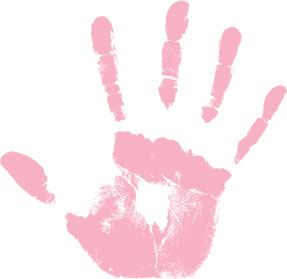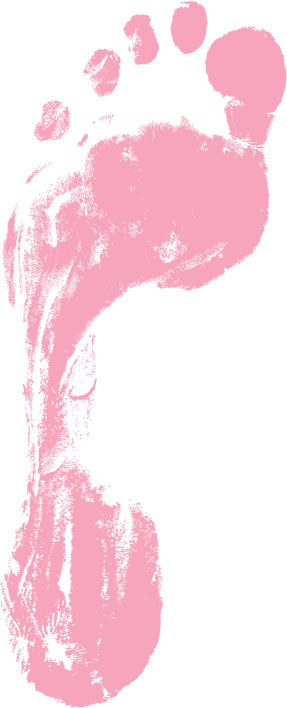Life
Hello, My Name Is

When your child has an Indian mother and a French papa, the subject of a suitable name is a cultural and linguistic minefield.
| Everyone has one, but I never thought it would be so difficult to choose it. A name, that is. I am now seven months pregnant, and should be worrying about a million other things, like, how I am going to keep the baby alive. But my biggest stress at the moment is the name. Most parents-to-be resolve this with a baby name book and are done with it. But when your child has an Indian mother and a French papa, the subject of a suitable name is a cultural and linguistic minefield.
Papa has listened patiently to my impassioned oratory on why the child should have an Indian name. The child will most certainly speak French and make frequent visits to the Gallic side of the family, keeping a foot firmly planted in the French side, I argue. But as I am an Indian born and raised in Canada with the majority of the family being non resident Indians, keeping up the Indian heritage will be more of an effort. The child will probably not look very Indian — genetic mixing, as family experience shows, produces a result that looks more Greek or Italian. So an Indian name will be an important link to our child’s Asian roots.
I admit myself that there were times growing up in my white environs that I would have killed for an uncomplicated WASP name, like “Debbie.” But now I am very proud about having a unique name that represents a culture and civilization that dates back thousands of years. (“Debbie” just doesn’t have that same primordial ring, I’m afraid.) So it is with this complicated background, we now confront our current naming dilemma. Until now the biggest joint decision we have made is on the color to paint our room — which was agonizing, and not the best choice in the end. Now the stakes are much higher. We thought we had solved the problem with the name Raoul — a French name that bears a similarity to the Indian name Rahul — a strong, proud name, unique yet international. It seemed resolved until a few months ago when we found out that we’re having a girl. Raoul just doesn’t quite work anymore. So it’s back to the drawing board, or in this case, the plethora of websites of Indian baby names. Our challenge: to find an Indian name, which works in French and English, that we both like and that our families won’t hate. This is no small feat. It’s one thing to find a pronounceable Indian name in English, but I am reminded that French is la belle langue, and the sound and way the name rolls of the tongue is of utmost importance. French girls’ names in Papa’s family are birdsongs: Camille, Delphine, Francine, Roselyne. Just how will we find an Indian name that accommodates the refined and sensitive French ear? We take on the challenge as a professional endeavor. I sit and read out the endless lists of names to Papa who shouts out when he hears one that catches his delicate French ears. “Aafreen, Adhira, Akshaya, Alaknanda, Alpana, Amrusha….” By the time I get to “Vagdevi, Vanita, Vaishali, Varada, and Vasundhara….” I feel like a swami reciting some ancient incantations. Of course, it’s not just the sound of the name, but its meaning that is no less important. In my experience, when you have an Indian name you will invariably be confronted with “ooh, that’s so exotic, what does it mean?” My favorite find so far is the boy’s name Durvish, which means “one who cannot be killed with poison.” That would really shut them up. Our shortlist includes the usual suspects that fit the East-West compromise: Maya, Shanti, Tara, Rita. But they’re all a bit, well, common. The first two have been appropriated by the love children of 1960s parents, the latter two are a tad too western, and I’m told they are not tres jolie in French. There are names that are pretty in Hindi, but I discover, have ludicrous meanings in French — “Charu” is a piece of farm equipment, for example, and Avani means humiliation in French! There are other names that simply do not work when Westerners get their tongues around them. Just look at how much fuss the relatively simple name Shilpa caused on Celebrity Big Brother in the UK — imagine life in the West with a name like Mriganayani or Padmalochana !
Another complication, which Papa finds difficult to understand, is that Indians don’t traditionally name children after parents or grandparents as Westerners often do — it’s actually considered bad form. So two very good candidates, Veena and Meera (my mother and my aunt) are off the list. After about our fifth website, Papa is exasperated and starts doubting that we will ever find an Indian name to satisfy an international audience. “We should just name her Marie, it will be simpler,” he suggests. But the thought of my offspring having the name Marie, just seems so … ordinary. “But what about her being tied to thousands of years of Indian civilization?” I pout, my concern exacerbated by the pregnancy hormones swilling around my system. Papa sighs and concedes, and we forge ahead to the next website, hoping that we will uncover the perfect name over the next two months. In the meantime, when people stroke the bump and asked about the name, we smile awkwardly, exchange nervous looks and shrug. Editor’s Note: The author’s daughter, born healthy and wide-eyed at press time, was named Nayana, the poetic word for “eyes.” |



You must be logged in to post a comment Login